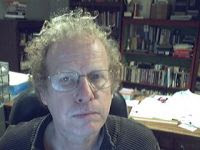Success Coach Anthony Robbins says that if y0u want a better quality of life, ask a better question. The quality of life we lead depends on the decisions we make, and they in turn depend on the quality of questions we ask of ourselves. A similar relationship exists between club meetings and the quality of Table Topics questions we ask.
So, what makes a quality question in terms of Table Topics? I’m still looking for the exact mix, but my current recipe for a quality question is the acronym SOFT. I look for questions that are short, open ended, fair, and tough.
The most important point to remember is the purpose of the Table Topics session – give members a chance to practice extemporaneous speaking skills. We don’t accomplish this if the question requires a long preamble. My rule of thumb is that a question should fit legibly, double-spaced, in a 3x5-inch index card. A somewhat stiffer test is that a question should be no more than twelve words long. Either way, keeping the questions short saves time that can be used elsewhere in the meeting. It also keeps the focus where it belongs – on the person answering the question.
Questions should be open ended, with lots of possible answers. If your question calls for expressing an opinion, stick to a subject area where expressing an opinion isn’t likely to create a problem. Take the question “When should public funds be used to support professional sports facilities?” In most contexts, this would be a reasonable question. If this is a highly divisive topic on which a person may not want to have an opinion known, it may not be as safe as it looks.
Your question shouldn’t require special knowledge on the part of the person answering it. This is a vital issue of fairness in contests, but it is equally valid at a meeting. The question should give the respondent a fair chance to give a great answer. The test for fairness is simple – can you comfortably ask it if anyone in the room, and can the answer be comfortably shared with everyone in the room?
My criterion for “tough” is relative – I don’t want to frighten away new and potential members, but I do want a question where some thought is required. The skills we are trying to develop are the ability to put appropriate content, organization, and emotion into an answer. One question from a division contest some years ago was “What’s your idea of the perfect job?” Second place went to someone who responded energetically about great pay, short hours, and lots of fringe benefits. The winner talked with sincerity and enthusiasm about his night and weekend job as a soccer referee. It was a tough question in the sense that a sincere, thoughtful response was the most effective.
When formulating your questions, keep the goal of the table topics session in mind. The session is the respondents opportunity to practice as a speaker, not your opportunity to practice as an interrogator. If the audience remembers your question and not the response, you probably need a better question.
A smart witness responds to questions as briefly and simply as possible. A smart politician may answer a question any number of ways. Toastmasters are trying to turn their answers into brief speeches, with a solid opening, body and closing. A high quality question which gives the respondent a good opportunity to exercise those skills can really enhance your meeting.
Wednesday, September 2, 2009
Subscribe to:
Post Comments (Atom)

No comments:
Post a Comment